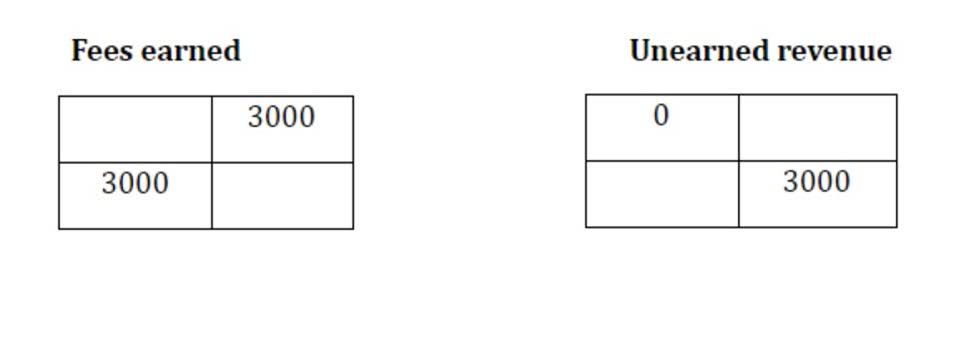What Is A Retainer Fee for a Lawyer? Retainer Fee Lawyer

Essentially, being knowledgeably aware of recent trends can help you determine a retainer allows for both a fair estimate and budgeting. Even though it is not intended to cover the entire cost of the services rendered, it does ensure that the lawyer is compensated for some of their time spent working on a case. Lawyers use retainers to help ensure payment, client peace of mind, and protection for themselves and their clients.
Essential Tips for IT Support for Law Firms
They can charge retainer fee meaning clients on the basis of the hourly rate, set flat fees, contingency, or go for the retainer fees option. You may be able to get a lawyer retainer returned to you, depending on the circumstances. The details of when and how refunds will be issued vary based on your agreement with your attorney.
Reconciliation in Accounting: Everything You Need to Know

Hiring a lawyer can provide significant advantages in your legal matters. However, only you can determine whether your needs justify having attorneys on retainer. ConsumerShield helps people and businesses understand their legal situations and find representation to assist them. Other fees, such as flat, hourly and true retainer fees, do not necessarily need to be written, but most lawyers will do so anyway to reduce the risk of conflict. The exact amount will depend on many factors, including the scope of the project and the lawyer’s hourly rate. The lawyer’s fee and the retainer amount could range from a few hundred dollars to several thousand, depending on the situation.
Everything Lawyers Need to Know About Retainer Fees
- Retainer arrangements may be preferable when you anticipate needing legal services on an ongoing basis.
- The software allows lawyers to effortlessly accept secure online payments for retainer fees.
- State ethics rules and state bar associations have rules of professional conduct, including rules for disputes and for making sure attorneys charge reasonable fees.
- Once the balance hits zero, the attorney may switch to billing hourly or request another deposit.
- With this type of lawyer retainer, the attorney does not get to keep the money until they actually provide the services you are requesting.
In a contingency fee agreement, an attorney will agree to represent the client without needing an initial retainer. Then, if the attorney can settle or win the case on behalf of the client, they will take a percentage of the total recovery resulting from the court order or settlement agreement. However, attorneys are bound by rules of professional ethics that require them to be fair in balance sheet the fees they are charging. The attorney must (by law) deposit that money in a trust account to draw from as work is done. If there is money left in the trust account at the end of the project, you get that back.
- This shows that the client is committed and has the funds to pay for legal services.
- If a lawyer cannot satisfactorily explain the fees he or she will charge for your case and why, you may wish to choose a different lawyer.
- Additionally, this practice enhances financial stability for law firms and individual attorneys.
- Attorneys draw from this account as they work, billing for services rendered.
- If you have any further questions or need assistance navigating your legal journey, don’t hesitate to reach out to a qualified professional.
- It also ensures the services align with the expectations in the agreement.
What are Retainer Fee Contracts? Are They the Same Thing?
Think of it as the “Marauder’s Map” of the legal world – only without the moving footprints. The tantalizing promise of financial stability for lawyers and the bedrock of many heated debates among the legal elite. But you can also see what alternative fee arrangements work best for you.

How Retainer Fees Work

In some cases, a high upfront retainer might suggest that your case is expected to be substantial, requiring more resources and time. Alternatively, a lower retainer may reflect either a less complex case or the attorney’s willingness to work with you based on your financial circumstances. Regardless of the amount, you must clarify all aspects of the agreement to avoid future misunderstandings or unexpected costs. A structured retainer agreement can lead to significant advantages in your legal processes. Not only does it guarantee availability and prioritized attention, but it also helps establish an ongoing professional relationship. In many cases, having a specific retainer in place allows you to navigate your legal challenges with confidence, knowing you have pre-paid expert support when you need it.

Legal and Ethical Considerations for Retainer Agreements
It’s also important to clarify how you prefer to be paid, whether by check, credit card, or digital methods. This will help to ensure that payment is processed smoothly and that the retainer is replenished as needed. Unfortunately, some large firms equate a retainer to an entry fee, causing confusion for clients. Not always—the retainer may not include other costs such as postage for mailing documents, paying expert witnesses who help your case, or making copies of files and depositions. It also benefits clients by ensuring that they receive dedicated attention from their attorney, as the retainer creates a commitment from both parties to work together effectively.
Keep in mind, each retainer agreement has its own implications for how your lawyer will manage your legal matters and how they will bill you for their services. Perceiving these differences is crucial when entering into a lawyer-client relationship. A retainer fee is a payment made in advance to secure the services of a lawyer. There are various types of retainer fees, each with its own purpose and implications for both the client and the attorney. Retainer fees ensure that attorneys have guaranteed payment for their time and services. This is especially important in long-term or complex legal matters where the full scope of work is uncertain.
- It spells out the nature of the services to be provided, the cost of such services, and how and when the lawyer will be paid.
- Attorneys on retainer have set aside time to work on their clients’ legal issues.
- Retainer fees can also be structured in different ways, such as a general retainer for ongoing services or a specific retainer for a singular task.
- Any individual or business that constantly needs legal service often opts for this subscription method.
- When not working or writing, she enjoys watching documentaries about true crime events.
Overall, this creates a more https://www.bookstime.com/ stable financial foundation for the practice, allowing attorneys to better serve their clients without financial disruptions. Retainer fees contribute to increased financial stability for lawyers and law firms. By having clients pay a retainer fee upfront, lawyers can ensure a steady flow of income.

![Daniël Klijn [LittleDean]](http://www.littledean.nl/wp-content/uploads/2018/10/cropped-Littledean-LONG-wit-1-1-1.png)